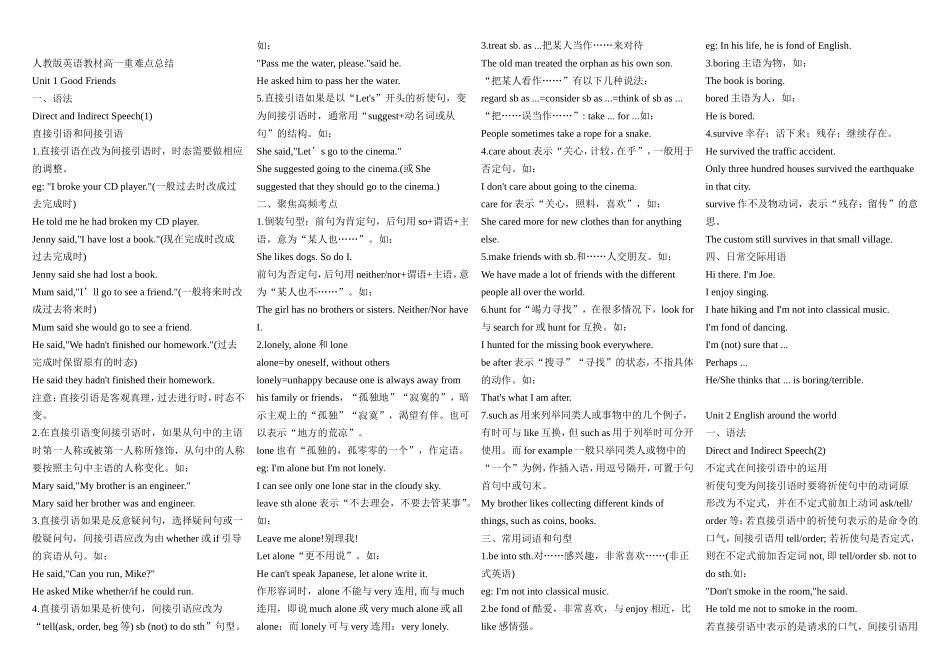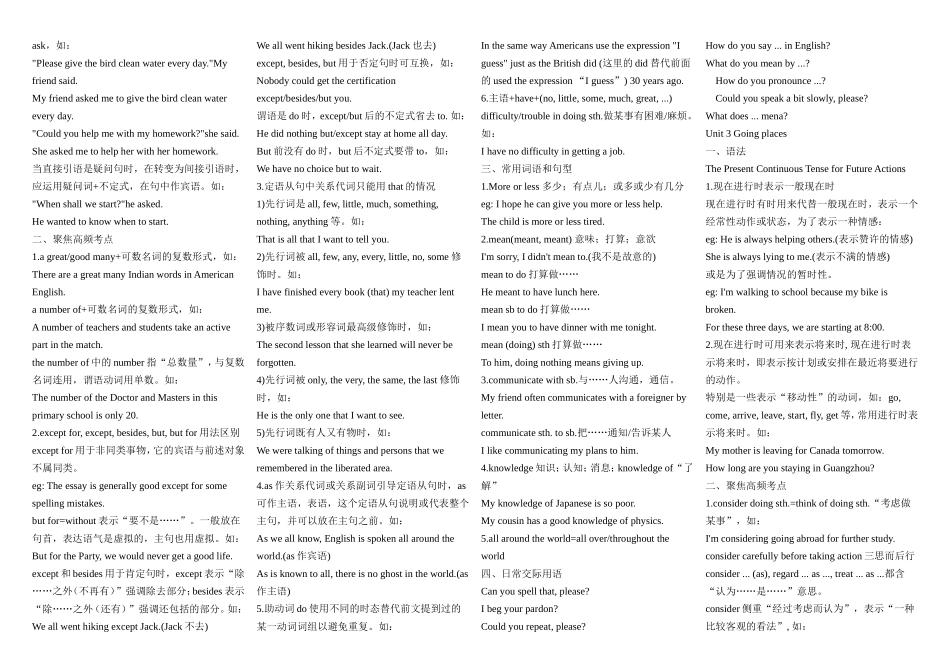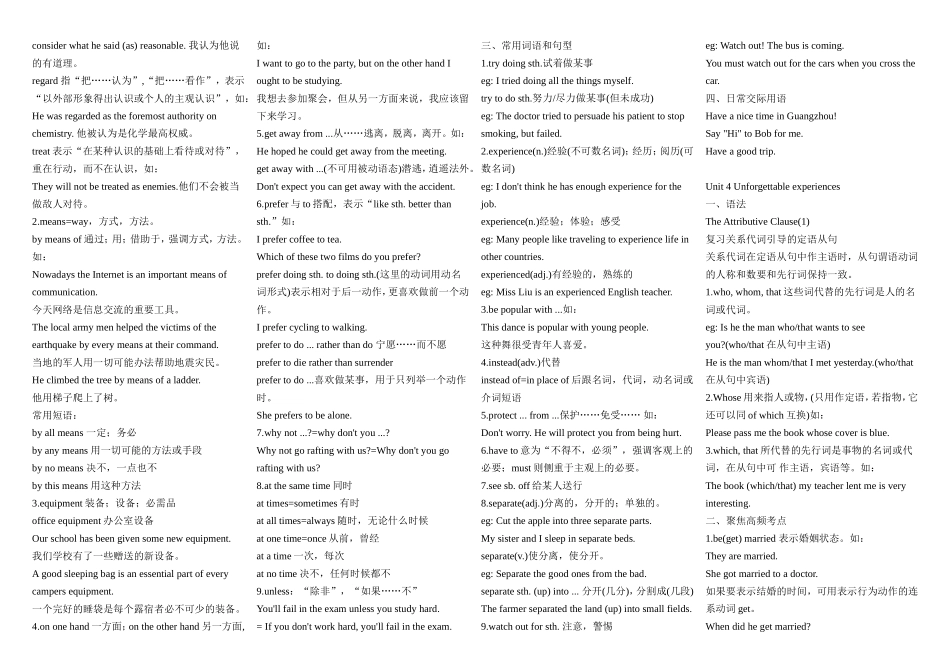人教版英语教材高一重难点总结Unit 1 Good Friends一、语法Direct and Indirect Speech(1)直接引语和间接引语1.直接引语在改为间接引语时,时态需要做相应的调整。eg: "I broke your CD player."(一般过去时改成过去完成时)He told me he had broken my CD player.Jenny said,"I have lost a book."(现在完成时改成过去完成时)Jenny said she had lost a book.Mum said,"I’ll go to see a friend."(一般将来时改成过去将来时)Mum said she would go to see a friend.He said,"We hadn't finished our homework."(过去完成时保留原有的时态)He said they hadn't finished their homework.注意:直接引语是客观真理,过去进行时,时态不变。2.在直接引语变间接引语时,如果从句中的主语时第一人称或被第一人称所修饰,从句中的人称要按照主句中主语的人称变化。如:Mary said,"My brother is an engineer."Mary said her brother was and engineer.3.直接引语如果是反意疑问句,选择疑问句或一般疑问句,间接引语应改为由 whether 或 if 引导的宾语从句。如:He said,"Can you run, Mike?"He asked Mike whether/if he could run.4.直接引语如果是祈使句,间接引语应改为“tell(ask, order, beg 等) sb (not) to do sth”句型。如:"Pass me the water, please."said he.He asked him to pass her the water.5.直接引语如果是以“Let's”开头的祈使句,变为间接引语时,通常用“suggest+动名词或从句”的结构。如:She said,"Let’s go to the cinema."She suggested going to the cinema.(或 She suggested that they should go to the cinema.)二、聚焦高频考点1.倒装句型:前句为肯定句,后句用 so+谓语+主语,意为“某人也……”。如:She likes dogs. So do I.前句为否定句,后句用 neither/nor+谓语+主语,意为“某人也不……”。如:The girl has no brothers or sisters. Neither/Nor have I.2.lonely, alone 和 lonealone=by oneself, without otherslonely=unhappy because one is always away from his family or friends,“孤独地”“寂寞的”,暗示主观上的“孤独”“寂寞”,渴望有伴。也可以表示“地方的荒凉”。lone 也有“孤独的,孤零零的一个”,作定语。eg: I'm...


